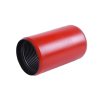- Afrikaans
- Albanian
- Amharic
- Arabic
- Armenian
- Azerbaijani
- Basque
- Belarusian
- Bengali
- Bosnian
- Bulgarian
- Catalan
- Cebuano
- Corsican
- Croatian
- Czech
- Danish
- Dutch
- English
- Esperanto
- Estonian
- Finnish
- French
- Frisian
- Galician
- Georgian
- German
- Greek
- Gujarati
- Haitian Creole
- hausa
- hawaiian
- Hebrew
- Hindi
- Miao
- Hungarian
- Icelandic
- igbo
- Indonesian
- irish
- Italian
- Japanese
- Javanese
- Kannada
- kazakh
- Khmer
- Rwandese
- Korean
- Kurdish
- Kyrgyz
- Lao
- Latin
- Latvian
- Lithuanian
- Luxembourgish
- Macedonian
- Malgashi
- Malay
- Malayalam
- Maltese
- Maori
- Marathi
- Mongolian
- Myanmar
- Nepali
- Norwegian
- Norwegian
- Occitan
- Pashto
- Persian
- Polish
- Portuguese
- Punjabi
- Romanian
- Russian
- Samoan
- Scottish Gaelic
- Serbian
- Sesotho
- Shona
- Sindhi
- Sinhala
- Slovak
- Slovenian
- Somali
- Spanish
- Sundanese
- Swahili
- Swedish
- Tagalog
- Tajik
- Tamil
- Tatar
- Telugu
- Thai
- Turkish
- Turkmen
- Ukrainian
- Urdu
- Uighur
- Uzbek
- Vietnamese
- Welsh
- Bantu
- Yiddish
- Yoruba
- Zulu
Understanding the Functionality and Uses of Pipe Bull Plugs in Plumbing Applications
Understanding Pipe Bull Plugs Essential Components in Pipeline Management
In the realm of fluid transport, whether it be in oil and gas, water supply, or chemical manufacturing, the integrity of pipelines is paramount. Among the various components that ensure the smooth functioning and maintenance of these systems, the pipe bull plug plays a critical role. This article aims to delve into the purpose, types, advantages, and applications of pipe bull plugs.
What is a Pipe Bull Plug?
A pipe bull plug is a type of fitting used to seal the end of a pipe. Its primary purpose is to prevent the passage of fluids and gases, thereby ensuring the safety and efficiency of pipeline operations. Typically made from materials like metal, plastic, or rubber, bull plugs come in various sizes to match different pipe diameters. The design of these plugs allows for easy installation and removal, which is beneficial during maintenance or when alterations to a piping system are necessary.
Types of Pipe Bull Plugs
Pipe bull plugs are available in several types, each designed for specific applications and environments
. The most common types include1. Standard Bull Plugs These are used for general applications where a straightforward sealing solution is required. 2. Threaded Bull Plugs Featuring threads, these plugs can be screwed into the ends of pipes for a secure fit. They are ideal for high-pressure applications. 3. Blind Flanges Although not traditional plugs, blind flanges serve a similar purpose by providing a non-removable seal. They are particularly useful for larger pipes or when a more robust sealing solution is needed.
4. Flexible Bull Plugs Made from flexible materials, these plugs can adapt to slight variations in pipe size and are often used in temporary sealing situations.
pipe bull plug

Advantages of Using Pipe Bull Plugs
The use of pipe bull plugs offers numerous advantages
- Leak Prevention Bull plugs create a solid barrier against leaks, which can be catastrophic in various industries, especially those dealing with hazardous materials. - Pressure Management By effectively sealing off sections of the pipeline, bull plugs help in maintaining appropriate pressure levels, crucial for optimal operation. - Ease of Maintenance The ability to quickly install and remove these plugs aids in routine maintenance and repairs without significant downtime. - Cost-Effectiveness By preventing leaks and ensuring pipeline integrity, bull plugs can save companies substantial amounts of money that would otherwise be spent on repairs and lost products.
Applications of Pipe Bull Plugs
Pipe bull plugs find applications across multiple industries. In the oil and gas sector, they are employed to secure drill pipes and prevent spills during maintenance. In the water supply industry, bull plugs are used to seal off valves or pipe sections during repairs, ensuring an uninterrupted supply of water. Additionally, in the chemical industry, these plugs are vital in maintaining the integrity of pipelines transporting potentially hazardous substances.
Conclusion
In summary, pipe bull plugs are indispensable components in the management of pipelines across various industries. Their ability to provide secure seals, facilitate maintenance, and prevent leaks makes them integral to ensuring operational efficiency and safety. As industries continue to evolve, the importance of reliable and effective sealing solutions like pipe bull plugs will only grow. Understanding their features and applications will help professionals make informed decisions in pipeline management and maintenance.
-
Tubing Pup Joints: Essential Components for Oil and Gas OperationsNewsJul.10,2025
-
Pup Joints: Essential Components for Reliable Drilling OperationsNewsJul.10,2025
-
Pipe Couplings: Connecting Your World EfficientlyNewsJul.10,2025
-
Mastering Oilfield Operations with Quality Tubing and CasingNewsJul.10,2025
-
High-Quality Casing Couplings for Every NeedNewsJul.10,2025
-
Boost Your Drilling Efficiency with Premium Crossover Tools & Seating NipplesNewsJul.10,2025







